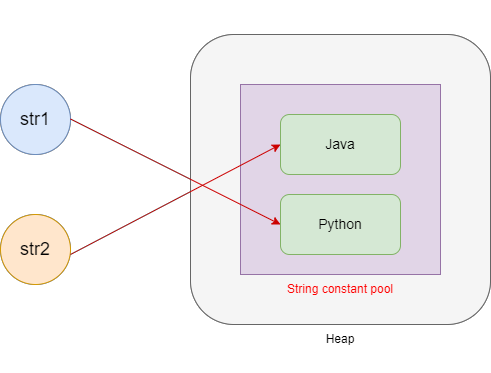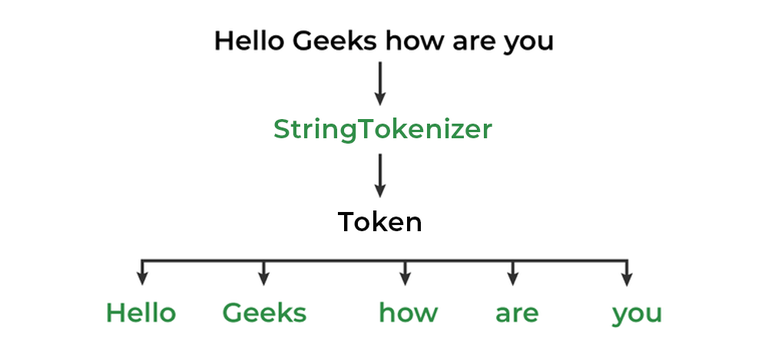Why Are Strings Immutable in Java? Insights into Memory Efficiency
Why Are Strings Immutable in Java? Insights into Memory Efficiency
Blog Article
Immutable Strings: A Key Element in Ensuring Data Uniformity and Integrity
In the world of data administration, the relevance of unalterable strings can not be overstated. The concept of unalterable strings transcends simple formality; it is a linchpin in the complicated web of information governance.
The Idea of Immutable Strings
Immutable strings, a fundamental idea in programs, describe strings that can not be modified once they are developed. Basically, as soon as a string worth is designated, any procedure that shows up to change the string actually develops a brand-new string. This immutability makes sure data uniformity and dependability in applications, as it protects against unforeseen modifications to the original data.
Benefits in Data Uniformity

Data consistency is vital in numerous facets of software advancement, including database monitoring, multi-threaded environments, and dispersed systems (Why are strings immutable in Java?). Unalterable strings contribute dramatically to accomplishing this consistency by protecting against data corruption as a result of concurrent accessibility. In scenarios where numerous processes or strings interact with the very same data at the same time, unalterable strings act as a guard against race conditions and synchronization problems
Furthermore, the immutability of strings simplifies debugging and testing procedures. With immutable strings, programmers can rely on that when a string is established, it will certainly continue to be the same, making it less complicated to map the resource of mistakes and guaranteeing that test situations generate constant results. This dependability in information dealing with ultimately results in extra steady and durable applications.

Executing Immutable Strings
Guaranteeing the immutability of strings needs a thoughtful method to their implementation in software development. When a string object is created, one vital technique is to develop string classes in a means that avoids alterations. By making strings unalterable, designers can boost data uniformity and integrity in their applications.
To execute unalterable strings properly, developers ought to prefer creating new string objects as opposed to modifying existing ones. This method makes sure that when a string is appointed a value, it can not be transformed. In addition, any operation that shows up to customize the string needs to create a brand-new string with the desired changes rather than changing the initial.
In addition, making use of unalterable strings can simplify concurrency administration in multi-threaded atmospheres. Since immutable strings can not be altered after development, they can view be safely shared among several strings without the threat of data corruption.
Role in Reliability Assurance
In software advancement, the use of immutable strings plays an important duty in making certain the reliability of information operations. Immutable strings, once created, can not be changed, making sure that the information they stand for stays regular throughout the application's execution. This immutability building provides a level of guarantee that the information being refined will certainly not be inadvertently transformed, causing unanticipated end results or errors in the system.
By integrating immutable strings into software application layout, programmers can boost the dependability of their applications by minimizing the dangers related to mutable data - Why are strings immutable in Java?. Immutable strings aid in preventing data corruption or unplanned adjustments, which can be particularly critical when managing delicate info or when information integrity is paramount
Furthermore, using immutable strings streamlines concurrent processing, as numerous threads can securely access and share string information without the threat of one thread altering the material while another reads it. This element adds substantially to the general reliability of the software program system, making certain foreseeable and additional info regular habits in data taking care of operations.
Applications and System Combination
The smooth combination of immutable strings right into different applications and systems is pivotal for making sure robust data uniformity and dependability throughout diverse technological atmospheres - Why are strings immutable in Java?. Unalterable strings play a critical duty in enhancing the honesty of data exchanges and communications within complicated software ecological communities. By incorporating immutable strings into applications, programmers can reduce the threats linked with information tampering, unauthorized alterations, and unintended changes, thus strengthening the total security position of the system
In the context of system assimilation, immutable strings act as a foundational aspect for developing safe communication networks and promoting seamless data transfers in between various components. Their immutable nature makes certain that data sent in between systems continues to be unchanged and proven, decreasing the chance of variances or mistakes that can endanger the stability of the entire system. Moreover, immutable strings can enhance interoperability in between disparate systems by offering a standardized format for information depiction, making it possible for extra reliable data processing and exchange protocols throughout interconnected systems. By embracing immutable strings in applications and system integration processes, companies can fortify their data framework and promote the reliability and uniformity of their info assets.
Verdict
In verdict, immutable explanation strings play a vital duty in preserving data uniformity and reliability in different applications and system integrations. By making certain that strings can not be altered when produced, the integrity of information is protected, lowering the danger of variances and mistakes. Executing unalterable strings can considerably improve the dependability of systems, inevitably causing even more precise and reputable information processing.

Report this page